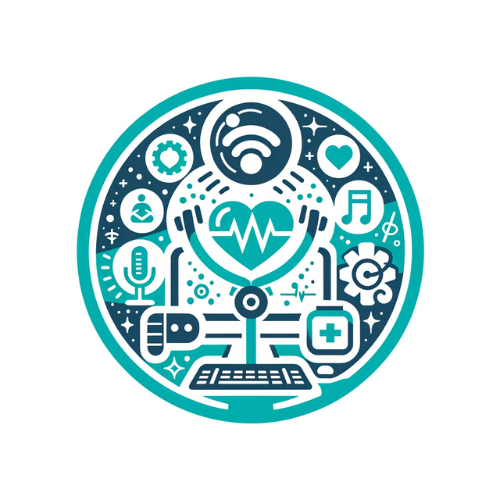Call us now:
USA News: Discover How Coffee Timing Can Enhance Brain Health and Extend Your Life
Welcome to the USA news section, today we want to talk about the intriguing relationship between coffee consumption timing and brain health.
Recent findings suggest that the timing of your daily brew could significantly influence not only your cognitive function but also your overall longevity.
With emerging data showing that morning coffee may offer more benefits than sipping throughout the day, it’s worth exploring how you can strategically incorporate this beloved beverage into a holistic lifestyle that bolsters both your mind and body.
The Science Behind Coffee Timing
According to a recent study published in the European Heart Journal and covered by USA News, drinking coffee in the morning—particularly before midday—may be linked to a reduced risk of death and lower rates of heart disease.
Researchers analyzed the health, nutrition, and lifestyle habits of over 40,000 adults in the United States, identifying two main coffee drinking patterns:
- Morning coffee drinkers: Individuals who primarily consume coffee before noon.
- All-day coffee drinkers: Those who sip coffee consistently throughout the day.
The findings revealed that people who enjoy coffee in the morning saw a 16% reduction in overall mortality risk and a 31% reduction in heart disease mortality compared to non-coffee drinkers.
Conversely, all-day coffee drinkers did not experience similar benefits, suggesting that timing is key to maximizing coffee’s positive impact on brain health and longevity.
Why Coffee Timing Matters
The hormone cortisol—associated with alertness and stress response—peaks shortly after you wake up, then begins to decline.
By aligning your coffee habit with this natural rhythm, you may improve the stimulating effects of caffeine while avoiding overstimulation.
This synergy can be particularly beneficial for those prone to anxiety and stress, as consuming coffee when cortisol is already high can amplify unwanted symptoms.
Morning coffee can also help preserve your circadian rhythm.
Drinking coffee too late in the afternoon or evening may disrupt melatonin production, leading to insomnia or restless sleep, which can negatively affect cognitive function and emotional well-being.
The Role of Coffee in Brain Health
Beyond its immediate perk-me-up benefits, coffee has been studied for its potential long-term impact on the brain.
Research points to caffeine’s role in neurotransmitter regulation, an essential aspect in managing mood disorders such as anxiety and depression.
According to a 2023 statement from the Centers for Disease Control and Prevention (CDC), mental health challenges continue to rise in the U.S., making every positive lifestyle factor—including thoughtful coffee consumption—an important piece of the puzzle.
Moreover, caffeine can strengthen the prefrontal cortex, the brain region responsible for complex behaviors, decision-making, and social interactions.
In an era where multitasking and mental agility are often demanded, supporting the prefrontal cortex is paramount for maintaining clarity and emotional stability.
Benefits for Cognitive Function
A few well-documented advantages associated with coffee consumption include:
- Improved attention: Moderate caffeine intake can enhance focus and alertness.
- Memory support: Some studies link regular coffee drinking with slower cognitive decline.
- Reduced risk of neurodegenerative diseases: While more research is needed, some evidence suggests coffee intake may be protective against certain conditions like Alzheimer’s and Parkinson’s.
These benefits underscore the holistic role that coffee—when consumed at the right time—can play in fortifying overall brain health.
Strategies for Enhancing Brain Health
Of course, coffee consumption is just one piece in the broader wellness puzzle.
Here are additional strategies to maintain a healthy mind and mitigate stress:
1. Regular Physical Activity
Engage in activities like walking, running, or cycling.
Exercise boosts blood flow to the brain and supports neurogenesis—the formation of new neurons—which can positively influence mood and cognitive function.
2. Mindfulness and Meditation
Frequent meditation or mindfulness practices can reduce anxiety and stress by decreasing the activity of the amygdala, the part of the brain responsible for processing fear and emotion, while strengthening the prefrontal cortex to promote better decision-making.
3. Balanced Diet
Adopt a diet rich in antioxidants and omega-3 fatty acids, found in foods like berries, leafy greens, and fatty fish.
Following dietary patterns such as the Mediterranean diet has been associated with a lower risk of cognitive decline and better overall brain health.
Managing Stress and Anxiety for Holistic Health
Living a balanced life can be challenging, especially when faced with daily stressors.
Here are some practical tips:
How Can I Avoid Anxiety?
Establish consistent routines that include mindfulness practices, regular exercise, and healthy sleep patterns.
Incorporating short “brain breaks” throughout the day can also help reset mental clarity.
Seeking help from mental health professionals offers additional support tailored to individual needs.
What Is the Best Way to Manage Stress?
Deep breathing exercises, yoga, and time management strategies can all help keep stress at bay.
Complementing these approaches with a mindful coffee habit—ensuring you drink it at times that align with your circadian rhythm—can help stabilize your mood and reduce stress-induced physical reactions.
The Importance of Societal Support for Holistic Happiness
In addition to lifestyle changes, remember that love, freedom, and community support are pillars of a fulfilling life.
Sharing experiences with friends and family or joining supportive communities can greatly enhance emotional resilience, fortifying both mental and physical health in the long run.
Your Next Steps Toward Better Brain Health
If you’re looking to integrate mindful coffee consumption and other cognitive wellness strategies into your routine, consider consulting an expert in brain health.
You can schedule an appointment here to receive personalized advice.
For even deeper insights, make daily meditation a habit.
Its proven benefits range from reducing stress-related hormone levels to improving attention and emotional stability.
The prefrontal cortex thrives on consistent meditation, enabling better focus and creative problem-solving.
Stay Connected and Engaged
We invite you to subscribe to The Brain Care Podcast to explore more about brain health, emotional stability, and holistic well-being.
Join our blog to keep pace with the latest research and tips for a healthier, more fulfilling life.
Enhancing health—whether it’s through coffee timing or other lifestyle practices—is a never-ending journey.
By prioritizing love, societal connections, and informed choices, we can magnify our happiness and sense of well-being.
Breathe, Heal, Evolve
VMO Tips for Optimal Coffee Consumption
Based on further guidance from health experts, here are some specific recommendations to make the most of your coffee habit:
- Avoid drinking coffee on an empty stomach if you’re a woman – This can help prevent digestive issues and reduce the risk of hormone imbalances.
- Choose organic coffee – This helps you avoid exogenous chemical toxins like pesticides, which can negatively impact long-term health.
- Never drink coffee after 2 PM – Doing so can disrupt your circadian rhythm and affect sleep quality.
- Opt for medium roasts – Avoid intense roasts that burn the beans, as this can produce unwanted compounds and alter flavor.
- Use coffee strategically rather than daily if boosting creativity – Consider enjoying coffee 3 times a week to maximize its performance benefits without hindering creative processes.
Bibliography
- USA News on Coffee and Health Benefits
- CDC Mental Health Statistics
- Journal of Nutrition, Health & Aging on Diet and Brain Health
- Health Psychology on Mindfulness and Its Effects on Cognitive Function
- Pickover, E. (2025). Drinking coffee in the morning could reduce risk of death and heart disease, study finds. The Independent.
For more insights and tips on brain health, follow us on social media and engage with our community.
Let’s move forward, informed and empowered, toward a healthier tomorrow!
Read the full article on USA News: Coffee can reduce your risk of death – but only when drunk at a certain time
Sigue leyendo nuestro contenido: Noticias Chile: “El ejercicio es clave para la salud cerebral el 2025”



